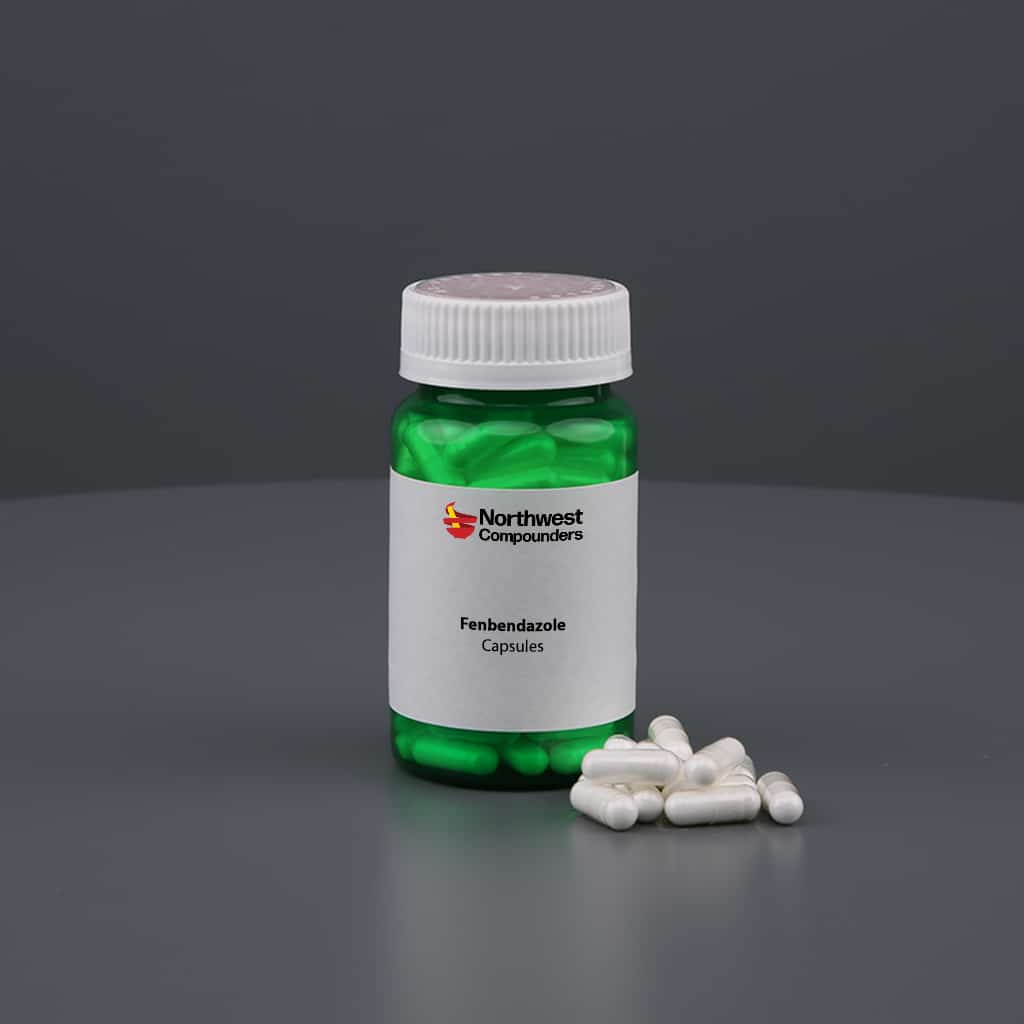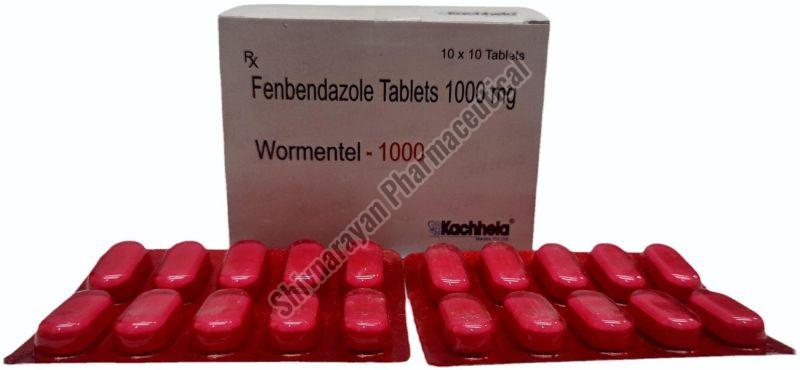Exploring the Systems Behind Fenbendazole and Its Effect On Pet Health
Fenbendazole is a widely utilized anthelmintic understood for its effectiveness versus various parasites. Its main device entails the restraint of microtubule development, which disrupts critical procedures in these virus. Past its antiparasitic buildings, fenbendazole additionally shows up to enhance immune actions and has anti-inflammatory advantages. Comprehending these multifaceted results might expose brand-new applications for pet health. Nevertheless, inquiries remain concerning its full capacity and security account.
The Pharmacokinetics of Fenbendazole
The pharmacokinetics of fenbendazole, a commonly made use of anthelmintic in veterinary medicine, involves the research study of its absorption, circulation, metabolism, and excretion within animal systems. After administration, fenbendazole is rapidly absorbed from the gastrointestinal tract, with peak plasma focus occurring within hours. Its distribution is affected by aspects such as cells binding and lipid solubility, allowing it to penetrate numerous tissues properly. The medicine undergoes extensive metabolic rate mostly in the liver, where it is transformed right into energetic and non-active metabolites. These metabolites contribute in the medicine's total effectiveness and safety account. Discharging occurs largely through feces, with a smaller percentage eliminated by means of urine. The half-life of fenbendazole differs among varieties, which influences dosing routines. Recognizing these pharmacokinetic residential properties is vital for enhancing its restorative usage and guaranteeing efficient parasite control in veterinary methods.
Mechanisms of Action Versus Parasites
Fenbendazole exerts its antiparasitic results mostly through the restraint of microtubule formation in parasites. This disturbance influences their structural honesty and mobile features, bring about damaged energy metabolic rate. Therefore, the medication effectively jeopardizes the survival and reproduction of various parasitical organisms.
Restraint of Microtubule Formation
Inhibition of microtubule formation represents an essential device where particular anthelmintic agents, consisting of fenbendazole, apply their impacts on parasites. Fenbendazole binds to tubulin, a healthy protein that forms microtubules, interfering with the polymerization process needed for microtubule setting up. This disturbance hinders essential mobile functions, consisting of mitosis, intracellular transportation, and structural integrity. As microtubules play an important duty in preserving the shape and function of parasitical cells, their inhibition results in cell cycle apprehension and ultimate fatality of the parasite. This device is especially efficient versus nematodes, as their reliance on microtubules for wheelchair and nutrient absorption makes them susceptible to fenbendazole. The inhibition of microtubule formation is a critical facet of fenbendazole's therapeutic efficiency in vet medication.
Disruption of Basal Metabolism
Interfering with power metabolic process is an additional essential mechanism whereby fenbendazole targets parasitical microorganisms. This anthelmintic alters the energy production paths within parasites, largely impacting their ability to create adenosine triphosphate (ATP) By preventing glucose uptake and interrupting mitochondrial function, fenbendazole limits the power sources vital for the survival and reproduction of these microorganisms. Therefore, bloodsuckers become significantly vulnerable to ecological tensions and immune feedbacks. Additionally, the disturbance in energy metabolic rate not just influences the bloodsuckers straight but also decreases their capacity to assimilate nutrients, better harming their growth. Generally, the disturbance of power metabolic process stands for a basic element of fenbendazole's efficacy versus numerous parasitical infections, adding substantially to improved animal health and wellness outcomes
Prospective Negative Effects and Security Profile
The possible negative effects and safety account of fenbendazole warrant mindful factor to consider, particularly in veterinary applications. While normally considered as secure, some pets might experience negative reactions, including stomach disruptions such as vomiting and diarrhea. In addition, neurological symptoms, although uncommon, have actually been reported in sensitive individuals, highlighting the demand for surveillance during therapy.

Fenbendazole's security in different species, consisting of pet dogs and pet cats, has actually been documented, however dose and period of therapy need to be carefully taken care of to minimize risks. Expectant or lactating animals might also require unique interest, as the results on creating fetuses or nursing children are not fully understood.
Normal vet assessments can aid mitigate possible side impacts and ensure the medicine is administered suitably. As a result, while fenbendazole is an effective anthelmintic agent, caution concerning its side effects is vital for keeping pet wellness.

Fenbendazole's Impact on Immune Function
Fenbendazole has been kept in mind for its potential to regulate body immune system feedbacks in animals. Its anti-inflammatory residential or commercial properties may contribute to boosted immune feature, supplying a dual benefit in handling health (fenbendazole 222). Understanding these impacts is important for assessing fenbendazole's duty in veterinary medicine
Immune System Inflection

Anti-inflammatory Residences
Anti-inflammatory effects stand for a substantial facet of fenbendazole's impact on immune feature. Research shows that fenbendazole might reduce the production of pro-inflammatory cytokines, which are crucial in moderating inflammatory responses. By regulating these cytokines, fenbendazole can potentially minimize inflammation-related problems in pets. This anti-inflammatory activity not only help in taking care of signs linked with different illness but likewise Visit This Link improves general immune system effectiveness. In addition, its ability to promote a well balanced immune action assists stop extreme inflammatory damage, which can cause chronic health issues. Consequently, fenbendazole's function in inflammation monitoring emphasizes its relevance in vet medicine, supplying a double advantage of antiparasitic activity and body immune system assistance for animal wellness.
Applications Beyond Standard Parasitic Infections
While primarily identified for its performance against different parasitical infections, fenbendazole has amassed interest for possible applications past this conventional range. Recent researches suggest that fenbendazole might have beneficial impacts on cellular health and wellness and immune feedback, making it an interesting candidate for managing various other wellness conditions in pets. Its reported anti-inflammatory residential properties might provide alleviation for pets experiencing from persistent inflammatory diseases. In addition, some research suggests that fenbendazole can play a role in sustaining the overall wellness of animals by improving nutrition absorption and intestinal health and wellness. Moreover, its potential as a complement treatment in cancer therapy has sparked passion, as initial searchings for suggest it could hinder tumor cell development in specific contexts. These diverse applications highlight fenbendazole's convenience, urging more expedition right into its complex benefits for animal health beyond its standard use as a deworming representative.
Future Research Study Instructions and Effects for Animal Wellness
The exploration of fenbendazole's potential applications has opened brand-new avenues for research study focused on improving pet health. Future studies can concentrate on its performance versus a broader series of pathogens, including germs and infections, consequently increasing its function in vet medication. The ramifications of fenbendazole's systems, such as its influence on immune inflection, warrant additionally examination to understand how it can boost overall wellness in his comment is here different varieties.
In addition, study may discover suitable dosages and formulas to optimize efficiency while lessening possible negative effects. Investigating fenbendazole's collaborating impacts with other medications could bring about much more efficient therapy methods. Longitudinal studies examining long-term results in animals treated with fenbendazole can offer important understandings into its security and effectiveness. In general, the ongoing exploration of fenbendazole supplies encouraging possibility to enhance pet health, requiring a collaborative approach among researchers, veterinarians, and pharmaceutical designers to promote advancements around.
Frequently Asked Inquiries
Can Fenbendazole Be Made Use Of in Livestock for Bloodsucker Avoidance?
The question of whether fenbendazole can be made use of in animals for parasite avoidance is pertinent, as manufacturers seek reliable treatments (fenbendazole 222). Research suggests it might supply advantages, however appropriate guidelines and veterinary recommendations are necessary for risk-free use
What Is the Advised Dose of Fenbendazole for Various Pets?

Are There Any Kind Of Known Medication Interactions With Fenbendazole?
Present expertise suggests that fenbendazole might engage with certain medications, possibly impacting their effectiveness or metabolic rate. Vet professionals recommend seeking advice from with a vet to assess individual animal situations and determine any kind of possible interactions before administration.
How Does Fenbendazole Contrast to Various Other Antiparasitic Drugs?
Fenbendazole is commonly contrasted to other antiparasitic medicines based upon efficiency, spectrum of activity, and safety and security profiles. It is favored for its effectiveness against a vast array of parasites while generally displaying very little side impacts in animals.
Is Fenbendazole Effective Against Viral or Microbial Infections in Animals?
The performance of fenbendazole against viral or microbial infections in pets continues to be unproven. Research study primarily concentrates on its antiparasitic residential properties, with restricted proof supporting any kind of function in treating non-parasitic infections in veterinary medication.